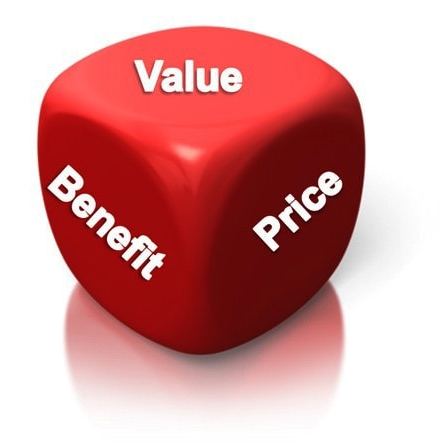“I know it when I see it.” This is a familiar description of an intangible, and is not particularly useful when describing the value of legal services. Clients seek to harness a business opportunity or address a business challenge – to add to the bottom line, avoid losing money, or to mitigate risk.
Legal advice contributes to clients’ goals in varying degrees, depending on the business context and legal risk. While most business clients view legal work as a means to an end, it is also a process that leaves both the client and the lawyer with a range of value judgments about the experience. All legal services are not equally valuable from a client’s perspective.
The skill of the legal team may produce an outcome where a successful result is based on the fact that nothing happened: a lawsuit is not filed; a regulator does not start an investigation; a transaction closes smoothly; all parties maintain confidentiality and secrecy until the moment is ripe. Other times, legal work clearly adds monetary value – when lawyers secure tax credits for their client in a complex financing structure, or craft a lease for a store that generates revenue for a retail chain. In all these situations, the level of effort is high and much should not be visible to the client – except in the ultimate result.
How might we demonstrate that legal work provides value for the client when costly but necessary legal services don’t track in an obvious way to the desired outcome? There is guidance outside the legal domain. I found three useful examples: medicine, in the quest to understand how to manage the escalating costs of quality care; and in research that identified factors for creating the value proposition in developing a product offering for business-to-consumer markets and business-to-business markets.
Nearly 20 years ago Michael E. Porter, the famous professor of strategy at Harvard Business School, published a piece called “What is Value in Health Care?”[i] in The New England Journal of Medicine. He identified value as the cornerstone for continuous improvement in the delivery of health care. Measuring value requires the disciplined measurement and analysis of data about outcomes. We now accept these practices as the hallmark of evidence-based medicine, which provides guidance that do not always match a physician’s clinical expertise in caring for patients.
Substitute the phrase “legal services” wherever “health care” appears, and “hours or billing value/ hourly-based fees” wherever “volume” appears in Porter’s writing:
Since value depends on results, not inputs, value in health care [legal services] is measured by the outcomes achieved, not the volume [billing value] of services delivered, and shifting focus from volume [hourly-based fees] to value is a central challenge. Nor is value measured by the process of care used; process measurement and improvement are important tactics but are no substitutes for measuring outcomes and costs.
Since value is defined as outcomes relative to costs, it encompasses efficiency. Cost reduction without regard to the outcomes achieved is dangerous and self-defeating, leading to false “savings” and potentially limiting effective care.”
From a patient’s perspective these remarks are indisputable, so why does the legal profession struggle with this approach?
Porter described the state of affairs that the legal profession faces today: value is not measured properly nor adequately understood. Lawyers overweight their subjective experience over data; empirical information about law practice has not kept pace with evidence-based medicine. Although process and efficiency deserve more weight in defining value in the legal profession, Porter’s observations should be the starting point.
Another route to meeting the challenge are articles in the Harvard Business Review in 2016[ii] and 2018[iii]. Eric Almquist and co-authors from Bain & Company wrote about their empirical research to identify “fundamental attributes of value in their most essential and discrete forms.” They assessed consumer and business satisfaction with products, and developed a framework that captures outcomes, process, experiential and personal components. The most objective kinds of value, as well as those that are considered table stakes, are identified. The framework also captures subjective and personal attributes.
Bain’s research provides a starter set of objective measures such as efficiency, responsiveness, quality and expertise, as well as economic results of the outcome and the cost to the client isolated. Isolating 40 distinct kinds of value, the research emphasizes that the more components of value that are present, the higher the likelihood of success. Most of the attributes are readily applicable to legal and other professional services.




